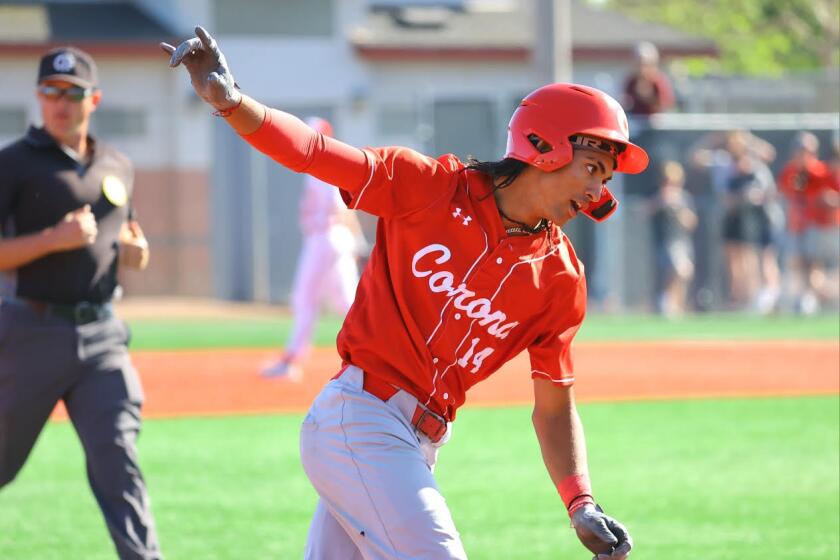A consumer’s guide to the best and worst of sports media and merchandise. Ground rules: If it can be read, played, heard, observed, worn, viewed, dialed or downloaded, it’s in play here.
- Share via
Title: “Knight Fall--The Truth Behind America’s Most Controversial Coach.”
Author: Phil Berger
Price: $6.50
Publisher: Pinnacle Books
This is a 16-chapter, do-right-now paperback on the rise and fall of Bob Knight.
But you can bail after Chapter 15, because the apparent windup to Knight’s coaching career is still fresh in almost everyone’s memory.
Berger’s book does have some strengths, but they’re in the early chapters. Here, we read of Knight’s fractious relationship with Coach Fred Taylor in Knight’s Ohio State playing days. Taylor regarded Knight as “a liability on defense.”
Bobby Knight the player had a deadly, low-trajectory jump shot, former teammates recalled, but he was nonetheless referred to as “The Brat from Orrville [Ohio].”
One teammate, Mel Nowell, recalled Knight this way: “Bobby couldn’t drive, he wasn’t quick enough. He wasn’t a good dribbler. He could only shoot the jumper and it had to be from far out--what would now be a three-point shot.”
Of early 1960s Buckeye practices, Nowell recalled, “He would get very physical in scrimmages. And guys would say to coach: ‘Hey, get him off me,’ or ‘Hey, have him check somebody else.’ ”
Before that, he was a bratty football-basketball-baseball star at Orrville High, but confounded coaches with his prickly personality. He was briefly thrown off the basketball team his senior season.
In Knight’s first coaching job, the junior varsity team at Cuyahoga Falls High in Ohio, he put his players through a brutal, six-hour practice after a loss.
Varsity Coach Harold Andreas told Knight, “You’re going to kill these kids. You’ve got to let them go sometime.”
Knight’s response: “I agree. But it’s going to be awhile.”
After that year, Berger writes, Knight briefly considered enrolling at UCLA’s law school and working as a part-time assistant under John Wooden. But then Knight had a chance to become assistant coach at Army, a move that launched a 35-year career as a college head coach.
More to Read
Go beyond the scoreboard
Get the latest on L.A.'s teams in the daily Sports Report newsletter.
You may occasionally receive promotional content from the Los Angeles Times.










